Moving forward from Nigeria’s flawed 2019 elections
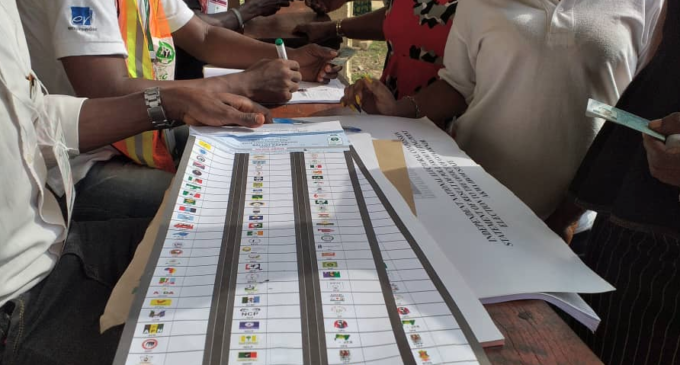
BY ABIOLA OLADUNNI
That Nigeria’s 2019 general election is still seen as an outlier – for good or bad – amongst the six general elections conducted in the Fourth Republic of the nation is not a misplace misgiving.
Firstly, President Buhari opened up the political space for youths ahead of the elections on May 31, 2018, by signing the Not Too Young Bill into law. The Act lowers the qualification age for presidential aspirants from 40 to 35 years and aspirants for House of Representatives from 30 years to 25 years balancing it with the qualification age for councillorship positions.
A few hours to the polls on 16 February 2019, INEC announced the postponement of the elections by a week for logistical reasons. The chairman of the Independent National Electoral Commission (INEC), Mahmood Yakubu said the one-week delay was required to hold a free and fair election. “The commission came to the conclusion that proceeding with the election as scheduled is no longer feasible. Consequently, the commissioners decided to reschedule the presidential and national assembly elections to Saturday 23 February 2019.”
However, the level of voters’ participation was poor and it has been termed as the worst yet. In fact. Nigeria had the lowest voters participation compared to other African countries in its presidential elections in 2019. Upon further analysis, it revealed that the presidential elections had a higher voter turnout than state-level elections.
There were 84 million registered but 72 million voters collected their Permanent Voter Cards and only 34.75% of total registered people participated in the elections. Reports also revealed that a high percentage of young voters held the perception that their votes will not count, only about 68 per cent of respondents are currently reported to have a Permanent Voter Cards (PVCs) and about 50 per cent had voted in an election past.
By general consensus, the 2019 elections had great failings. Some of these failings included INEC’s shoddy preparation for the elections, vote-buying and forms of electoral malpractices. Votes cost from N500 up to above N1000 in some locations while other areas focused on food as opposed to cash. Also, violence was largely deployed as a tool of intimidation to drive low turnout in opposition areas. There was a marked high incidence of electoral violence and fatalities in the North-Central region and also some parts of the South-South, Delta and Rivers specifically.
Amid the deluge of controversies that smeared the elections, the 2019 elections stand out as the costliest in Nigeria’s history. The Federal Government funded the elections with a huge sum of 242 billion naira; 189 billion naira of the money was allocated to INEC while the remaining 53 billion naira was distributed amongst the security agencies for the security of electoral activities. Meanwhile, millions of dollars were spent as contributions to INEC by the different international donor partners, one which is the European Union that spent a whopping 170 million naira on the last general elections.
Sadly, despite the avalanche of monetary resources spent on the elections, the resultant outcomes were far from positive rather. The elections were rife with tales of logistical failure whereby INEC materials did not arrive on time or at all at many polling units while some voting materials such as card readers failed to work. Also, fraudulent activities such as stolen or missing voting materials by by INEC staff or other electoral officials led to various scenarios where voters protested blatant malpractices.
It was reported in some states that security agents such as the military or police were complicit and involved in electoral incidents and/or violence. The lackadaisical attitude of the security agents further enabled thuggery to thrive thus violence was perpetrated by thugs sponsored by politicians, politicians themselves, political parties and their affiliated groups to disrupt elections.
The European Union Election Observation Mission to Nigeria preliminary observations on the presidential elections are noteworthy.
“Its [INEC] serious operational shortcomings reduced confidence in the process and put undue burden on voters,” the leader of the Mission to Nigeria Maria Arena said on February 25.
Arena’s observations have been corroborated by different groups including SBM Intelligence.
But Nigeria can move forward from conducting fatally flawed elections. The faulty system that enabled such anomaly can be fixed. If the country can conduct the laudable 1993 general elections, then it can repeat or even better such feat. But is there a political will?
Views expressed by contributors are strictly personal and not of TheCable.






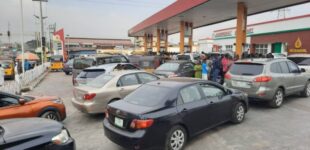
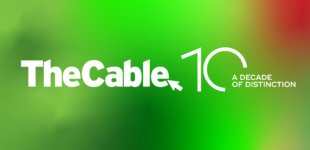

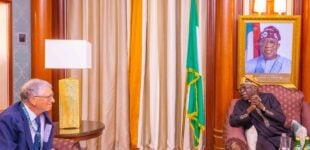
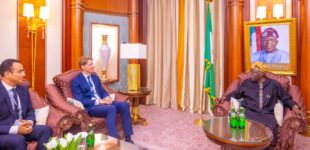

There are no comments at the moment, do you want to add one?
Write a comment